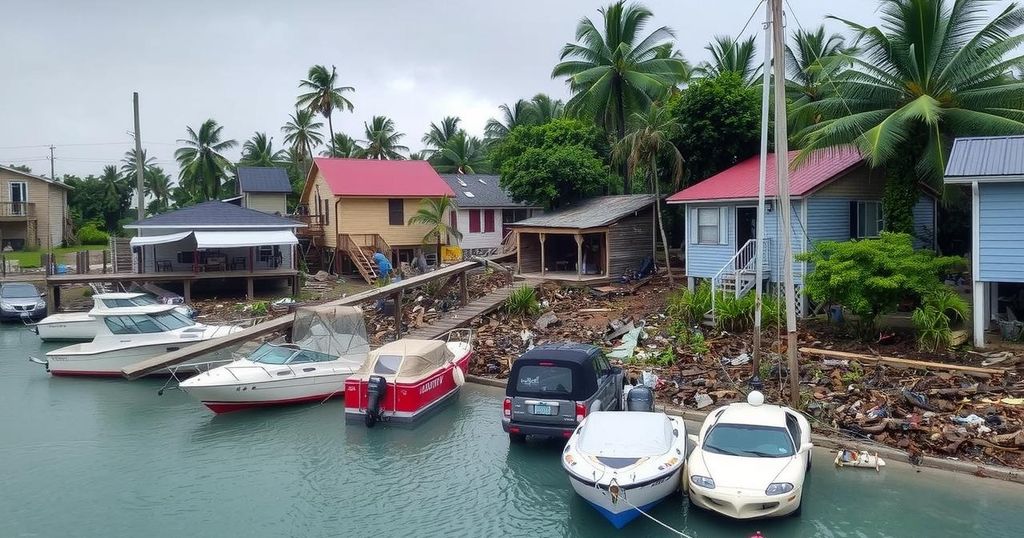Tropical Storm Dikeledi Devastates Mayotte, Deepening Recovery Challenges After Cyclone Chido

Tropical Storm Dikeledi has severely impacted Mayotte, following the recent devastation from Cyclone Chido. The storms have exposed the region’s vulnerabilities, stressing the challenges of disaster recovery amid socio-economic difficulties. Mayotte’s government has implemented emergency protocols and local officials are mobilizing to provide aid as the community endures the impact. The situation emphasizes the need for resilience-building and international support for the island’s recovery efforts.
On January 13, 2025, Tropical Storm Dikeledi struck the French territory of Mayotte, compounding the devastation from Cyclone Chido, which had struck in December. The tropical storm brought heavy rains and strong winds that led to widespread disruption, urging residents to remain indoors. As Mayotte already faced significant challenges from the previous storm, the arrival of Dikeledi only intensified their struggles, raising concerns about the island’s infrastructure and disaster preparedness. Emergency protocols have been activated, with officials advising residents to accumulate essential supplies in anticipation of potential impacts. Furthermore, the government and humanitarian organizations are mobilizing to assist affected communities, emphasizing the need for logistical support due to the island’s geographical isolation. The dual crises have highlighted Mayotte’s vulnerabilities, particularly in the context of climate change and socio-economic challenges prevalent in the region. In the face of adversity, the resilience of Mayotte’s residents is being tested, yet there is hope for recovery through international aid and collaborative efforts towards sustainable development.
Mayotte, an archipelago situated in the Indian Ocean, is a French department characterized by its socio-economic struggles, including high unemployment and insufficient healthcare services. The region frequently encounters severe tropical storms, which have been exacerbated by climate change over the years, illustrating the need for robust disaster preparedness plans. Cyclone Chido, which resulted in significant casualties and destruction, was one of the worst storms to affect Mayotte in nearly a century. As the territory grapples with the aftermath of previous disasters, the arrival of Tropical Storm Dikeledi has heightened concerns about its capacity for recovery and infrastructure resilience.
In summary, the successive impact of Tropical Storm Dikeledi and Cyclone Chido on Mayotte underscores the urgent need for enhanced disaster management strategies in vulnerable regions. The socio-economic challenges and geographical isolation of the island complicate recovery efforts, highlighting the necessity for a coordinated response from local authorities, international aid organizations, and governmental bodies. Addressing the immediate needs while establishing a framework for long-term resilience is essential for Mayotte’s recovery and future sustainability, particularly in the context of climate change.
Original Source: www.travelandtourworld.com







